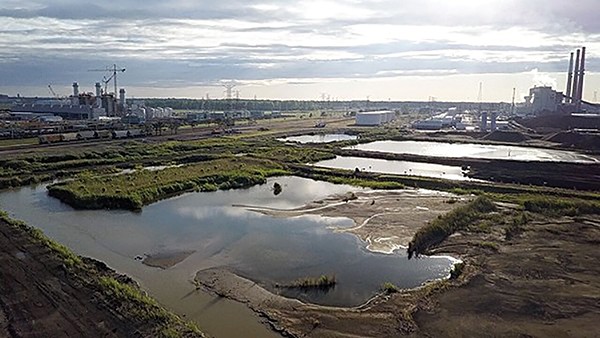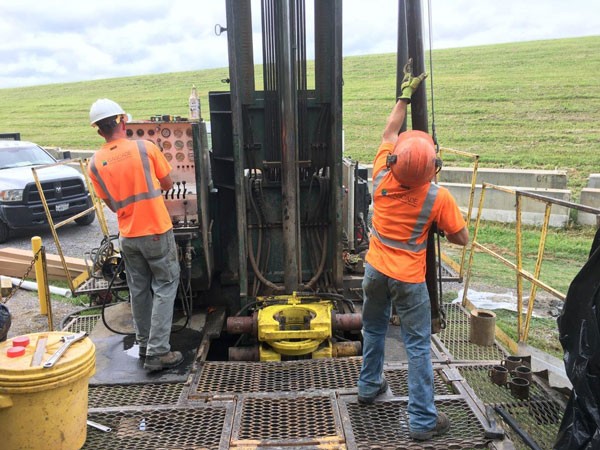
Coal ash pond at TVA ‘s Memphis plant
The Tennessee Valley Authority (TVA) plans to close and drain a “leaking” and “contaminated” coal ash pond close to its now-closed Allen Fossil Plant, according to state documents.
TVA told Tennessee Department of Environment and Conservation (TDEC) officials in a letter last week that it plans to close the East Ash pond and drain it. The move is similar to those at other TVA fossil plants that have been retired, TVA spokesman Scott Brooks said, including John Sevier in East Tennessee and Widows Creek in Alabama.
“We remove the water from the pond, as it is no longer necessary for the handling and storage of the coal combustion residuals once the plant is closed,” Brooks explained.
The east pond was built in 1967, expanded in 1978, and is now 70 acres, according to the nonprofit Environmental Integrity Project. It replaced another pond on the site, which was retired in 1978 and closed in 2016.
Arsenic, lead, and other toxins, were found in groundwater close to the open coal ash pond last July. This discovery came after TVA drilled wells into the Memphis Sand Aquifer, the source of the city’s drinking water, and planned to use that water to cool its new natural gas energy plant here.

Some worried that running the wells would pull toxins from the pond into the Memphis Sand aquifer. TVA launched an investigation run by the U.S. Geological Survey and the University of Memphis.
The groups found that the Memphis Sand was hydraulically linked to a contaminated aquifer above it. Well before that ultimate finding, though, TVA decided against using the wells.
No firm timeline has yet been established on the coal ash pond closure project. Brooks said draining it is dependent on, “several other actions, including a remediation plan, and the timeframe for managing other plant processes including stormwater and fire suppression. Those decisions are still being made.”
 Tennessee Valley Authority
Tennessee Valley Authority
TVA workers install water quality monitoring wells near the Allen Fossil Plant.